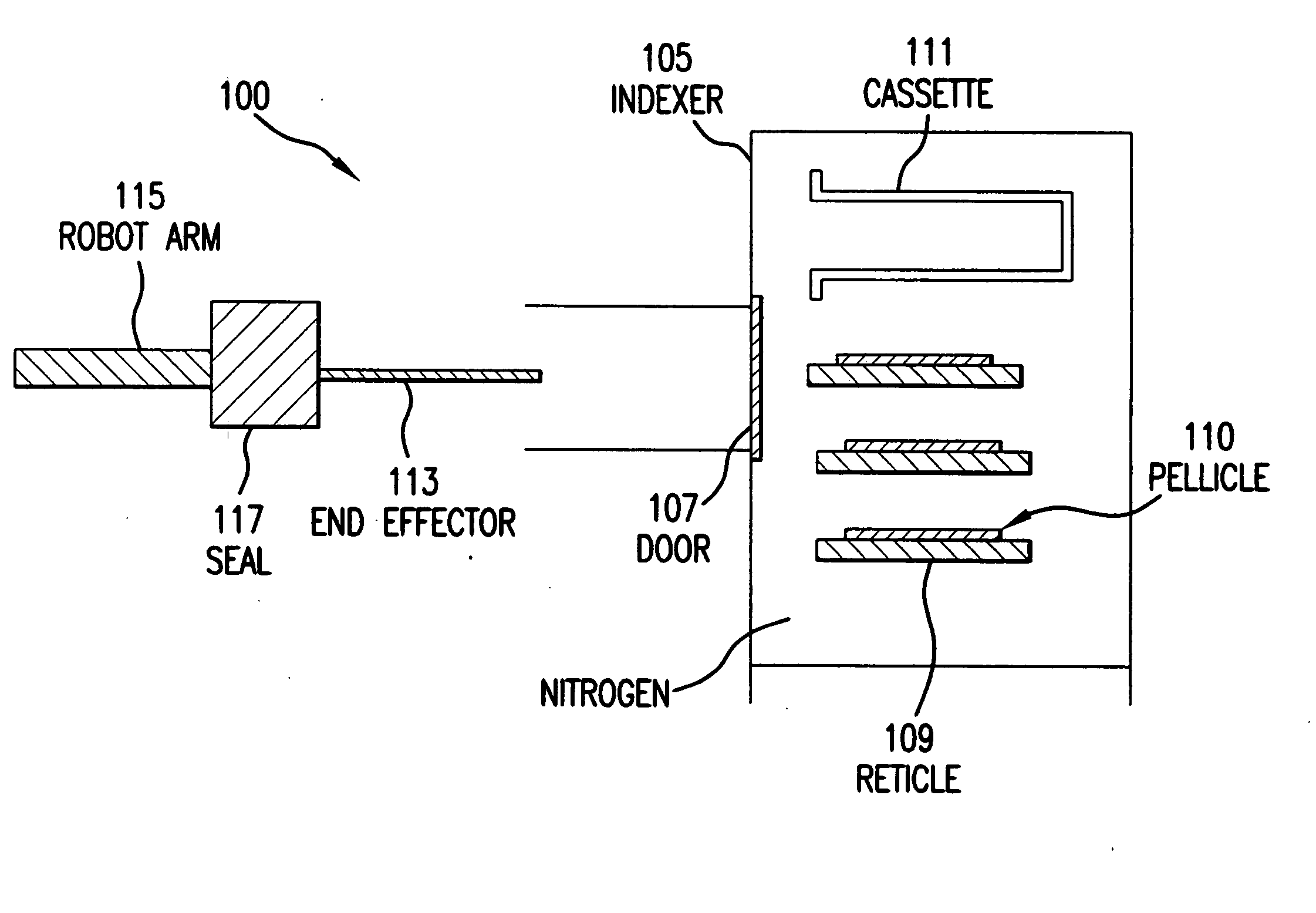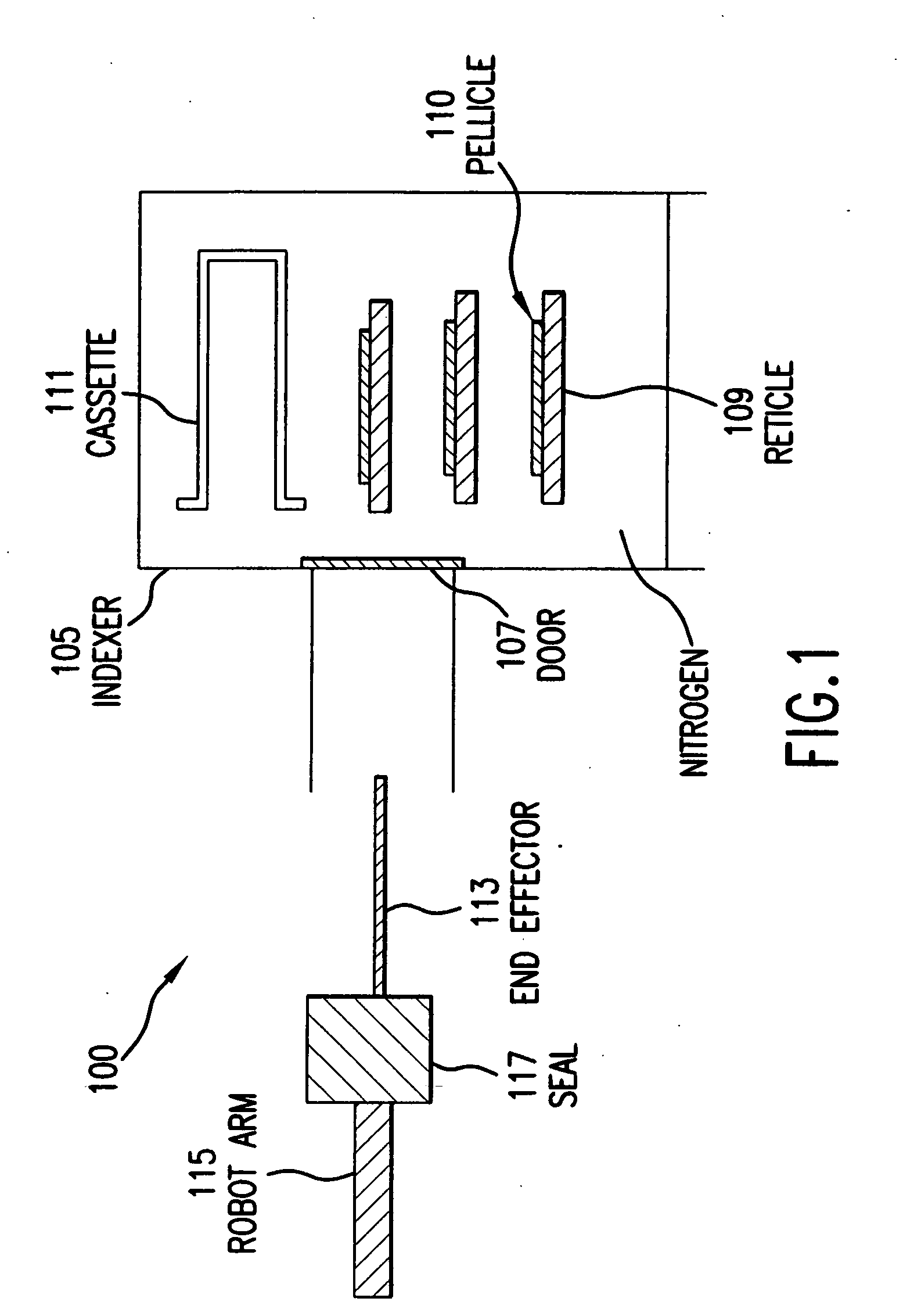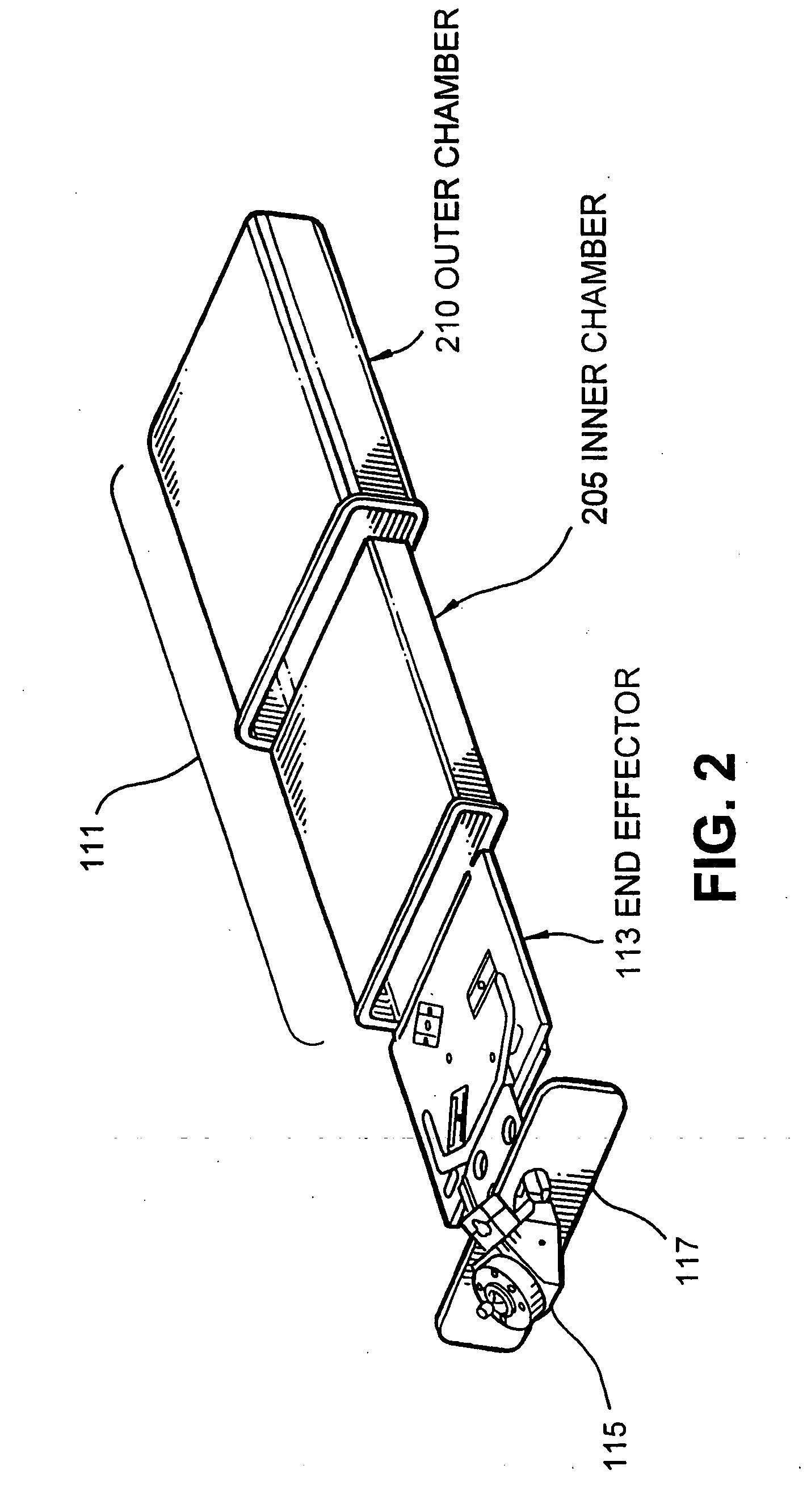System and method for reticle protection and transport
a technology of reticles and transport devices, applied in the field of lithography, can solve the problems of large clean room size, prone to contamination, and high cost of maintaining a clean room, and achieve the effect of reducing the potential for reticle contamination
- Summary
- Abstract
- Description
- Claims
- Application Information
AI Technical Summary
Benefits of technology
Problems solved by technology
Method used
Image
Examples
Embodiment Construction
[0029] Embodiments of the present invention will now be discussed in detail. While specific features, configurations and arrangements are discussed, it should be understood that this is done for illustration purposes only. A person skilled in the relevant art will recognize that other steps, configurations and arrangements or devices may be used to achieve the features of the invention without departing from the spirit and scope thereof. Indeed, for the sake of brevity, conventional electronics, manufacturing of semiconductor devices, and other functional aspects of the method / apparatus (and components of the individual operating components of the apparatus) may not be described in detail herein.
[0030]FIG. 1 illustrates a reticle transport system 100 for a lithography tool. The reticle transport system 100 includes an indexer 105. In accordance with an embodiment of the present invention, the indexer 105 further comprises a library of shelves (not shown) within the lithography tool...
PUM
| Property | Measurement | Unit |
|---|---|---|
| atmospheric pressure | aaaaa | aaaaa |
| permeable | aaaaa | aaaaa |
| impermeable | aaaaa | aaaaa |
Abstract
Description
Claims
Application Information
 Login to View More
Login to View More - R&D
- Intellectual Property
- Life Sciences
- Materials
- Tech Scout
- Unparalleled Data Quality
- Higher Quality Content
- 60% Fewer Hallucinations
Browse by: Latest US Patents, China's latest patents, Technical Efficacy Thesaurus, Application Domain, Technology Topic, Popular Technical Reports.
© 2025 PatSnap. All rights reserved.Legal|Privacy policy|Modern Slavery Act Transparency Statement|Sitemap|About US| Contact US: help@patsnap.com



